Education
Jordan B Peterson, Critical Theory, and the New Bourgeoisie
Where did the social justice advocates, and their associated attitude, come from?
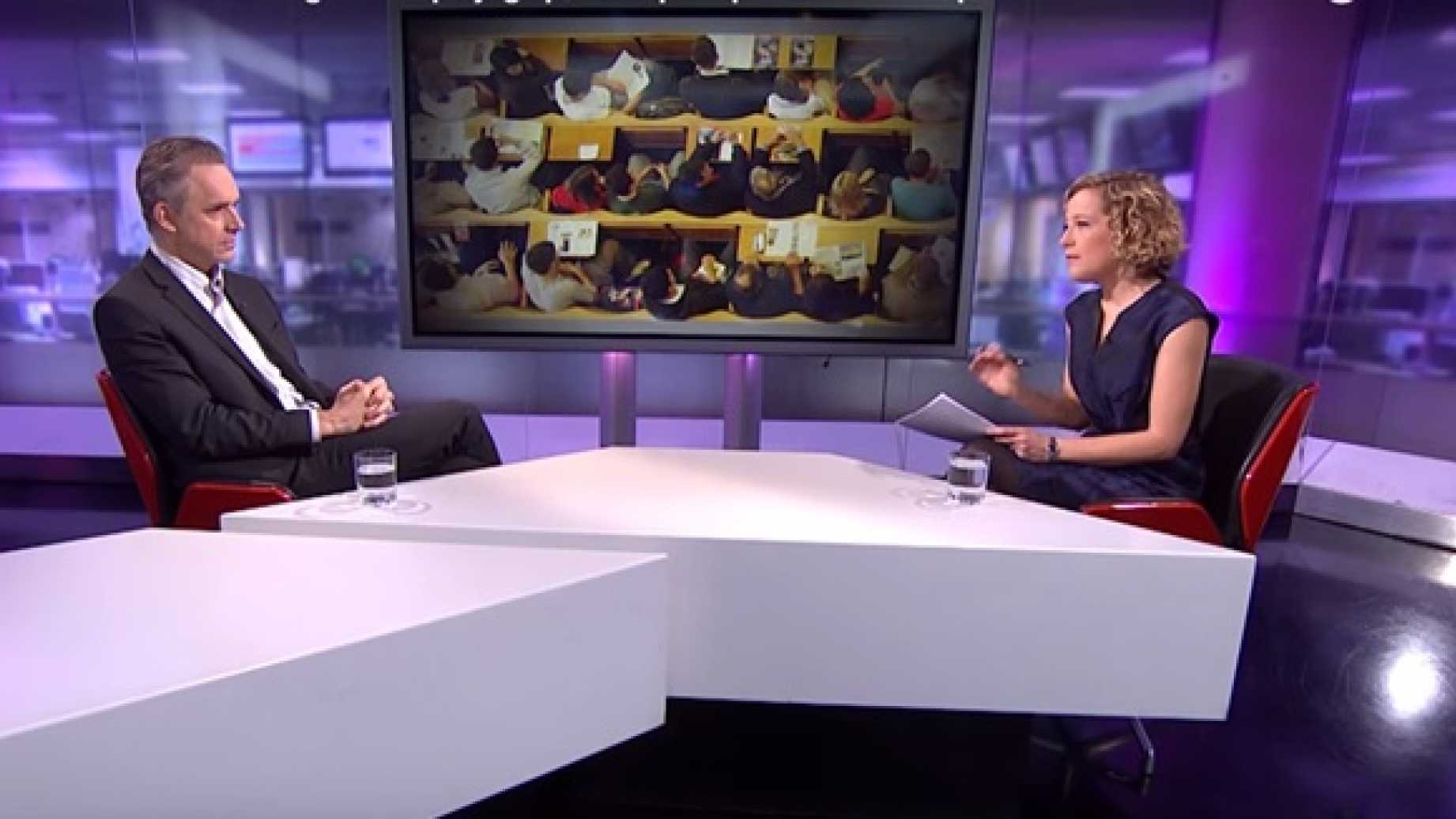
Earlier this week, clinical psychologist Jordan B. Peterson appeared on Britain’s Channel 4 in an interview with TV journalist Cathy Newman. It didn’t go well. Journalist Douglas Murray described it as “catastrophic for the interviewer”, while author Sam Harris called it a “nearly terminal case of close-mindedness”. Sociologist Nicholas Christakis perhaps described it best:
This man @jordanbpeterson is preternaturally calm and composed in the face of a hostile interviewer who also had simply not thought adequately about her ideas and approach. Facts and reason are powerful allies. https://t.co/NeMhSRMinK
— Nicholas A. Christakis (@NAChristakis) January 18, 2018
Christakis mentions two important things about Newman. First, she seemed hostile towards Peterson, clearly going into the interview with a moral prejudice towards him. Second, she seemed unable to engage with his arguments, instead misrepresenting them (“You’re saying women aren’t intelligent enough to run top companies?”) or taking issue with them (during a conversation about unhealthy relationships, Newman asked: “What gives you the right to say that?” Answer: “I’m a clinical psychologist.”) At one point, she was rendered speechless.
It was as though she had never heard arguments like Peterson’s before, and was taken aback to discover they existed. As a presumably well-read person, why had she not been exposed to arguments like this before? The answer, I think, is that these arguments have largely been banished from contemporary mainstream news media and entertainment. Only because of Peterson’s immense grassroots success has he forced his way into the conversation, which makes it all the more awkward when an interviewer looking to put him in place ends up bewildered.
But why have these arguments been banished? The immediate answer is social pressure. As social justice advocates have come to dominate Western culture, they’ve created a situation where interlocutors are more intent on burnishing their adherence to the correct opinions than they are about discovering something new, learning the truth, or even engaging in open and reciprocal dialogue. Hollywood actors wear political slogans to awards ceremonies, comedians lecture their audiences rather than entertain them, and television hosts go into battle with their guests rather than interview them. Naturally, this has pushed out opposing voices.
But where did the social justice advocates, and their associated attitude, come from? The answer to that, I think, is academia. A recent episode, also involving Peterson, demonstrates this.
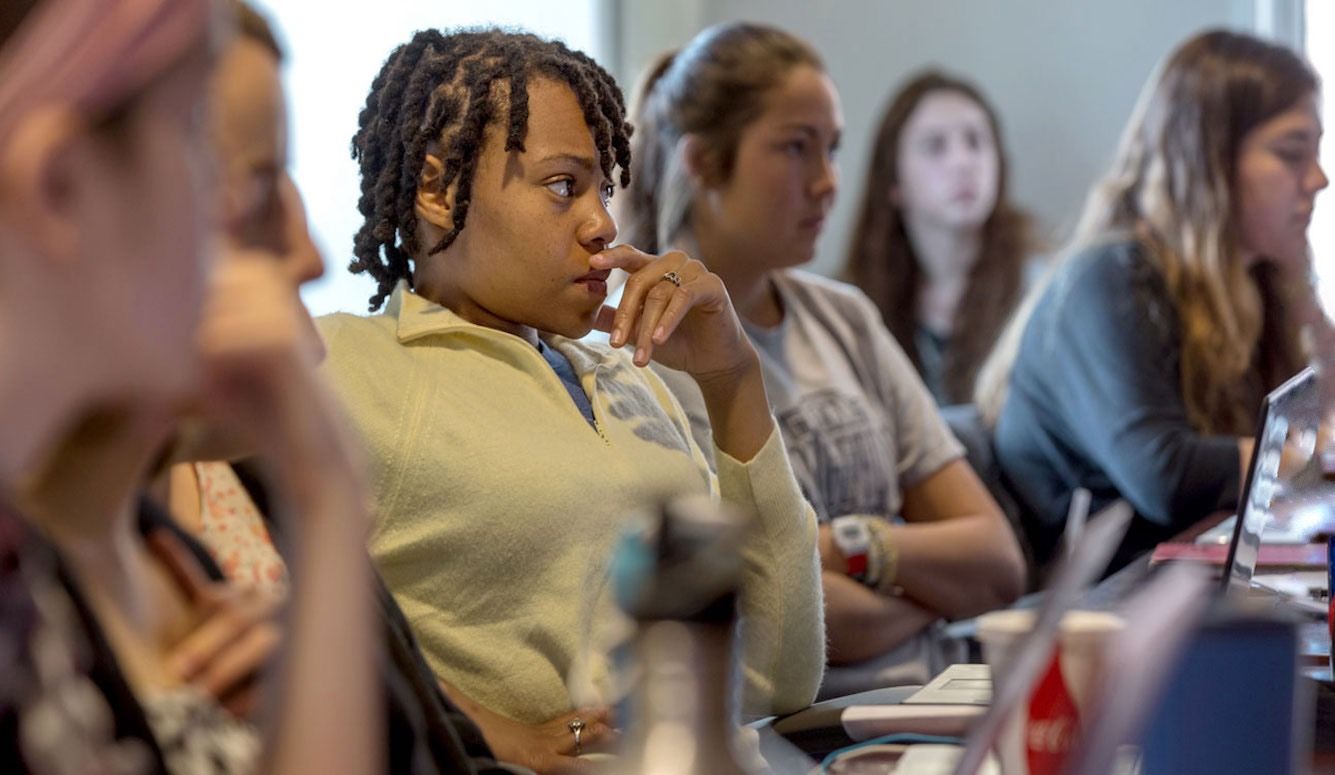
* * *
When Lindsay Shepherd was reprimanded last year by three Wilfrid Laurier faculty members for showing her class a video clip from a televised debate on gender pronouns, Shepherd’s professor Nathan Rambukkana wrote an apology drawing attention to his teaching style. He wrote: “[T]here is the question of teaching from a social justice perspective, which my course does attempt to do.”
When I contacted Lindsay Shepherd earlier this month, she told me that she didn’t know Rambukkana taught from an explicitly “social justice” perspective. However, after going through the syllabus, she realised he had talked about it in his Week 2 lecture, and that the reading material that week also mentioned it. Yet even then, she said, she was unaware how loaded the term “social justice” is and how it often aligns with censorship and one-sidedness. Her response when I asked her whether she recognised various social justice terms was:
My undergraduate degree is in Communication from Simon Fraser University, and the gist of my program was learning about power; mostly power as it manifests in media and media industries. I was very accustomed to talking about feminism, racism, and oppression. Less so the other terms you mention, which I only became more acquainted with in my graduate degree program, and many of them as a result of the Laurier incident — i.e. I was unaware of any substantial critique of intersectionality, gender theory, and critical theory, as we were only taught them from the “social justice perspective.”
Shepherd had lots of exposure to a social justice perspective, but only from within the perspective itself. She was taught social justice beliefs but had never been taught to critique those beliefs. When she came across a professor who did just that—Jordan Peterson—she found it interesting and new, even while disagreeing with him. (She later came to realise he may have been right about the legislation he was criticising.) So she shared a clip of the debate with her students, and only afterwards did she discover that not only are critiques of social justice not taught, they aren’t even to be acknowledged.
The methodology underpinning much of the social justice perspective is known as critical theory. What’s notable about critical theory is that it specifically distinguishes itself from ‘traditional’ theories through its emphasis on criticism. This makes the apparent unwillingness of its adherents to engage with criticism themselves especially noteworthy. When you explicitly emphasise your criticality and base your theory on a commitment to look beneath appearances and see things as they really are, you don’t get to be selectively critical. So why does this phenomenon exist?
* * *
Critical Theory draws heavily on Karl Marx’s notion of ideology. Because the bourgeoisie controlled the means of production, Marx suggested, they controlled the culture. Consequently, the laws, beliefs, and morality of society reflected the interests of the bourgeoisie. And importantly, people were unaware that this was the case. In other words, capitalism created a situation where the interests of a particular group of people—those who controlled society—were made to appear to be universal truths and values, when in fact they were not.
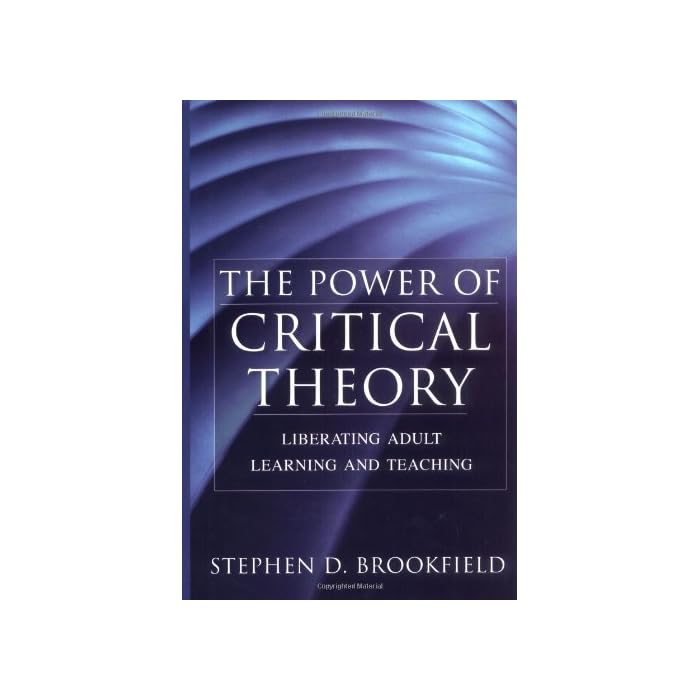
The founders of critical theory developed this notion. By identifying the distorting effects power had on society’s beliefs and values, they believed they could achieve a more accurate picture of the world. And when people saw things as they really were, they would liberate themselves. “Theory,” they suggested, always serves the interests of certain people; traditional theory, because it is uncritical towards power, automatically serves the powerful, while critical theory, because it unmasks these interests, serves the powerless.
All theory is political, they said, and by choosing critical theory over traditional theory one chooses to challenge the status quo, in accordance with Marx’s famous statement: “Philosophers have hitherto only interpreted the world in various ways; the point is to change it.”
There’s no question critical theory can be useful, and that viewing societal elements—beliefs, values, norms, institutions—through a lens of power and examining whose interests they serve can provide highly valuable insights. But as it becomes more widespread and its adherents more powerful a challenging situation emerges, because then critical theory must then be turned on itself.
And so, the question becomes: are the values and beliefs of critical theory itself universal, or are they also partial to particular interests? Superficially, it seems they’re universal. After all, the stated purpose is to use critical theory to liberate people, and how can liberation not be universal? But, of course, the whole point of critical theory, by its own admission, is to look beneath the appearance of universality and identify the power and interests that lie below.
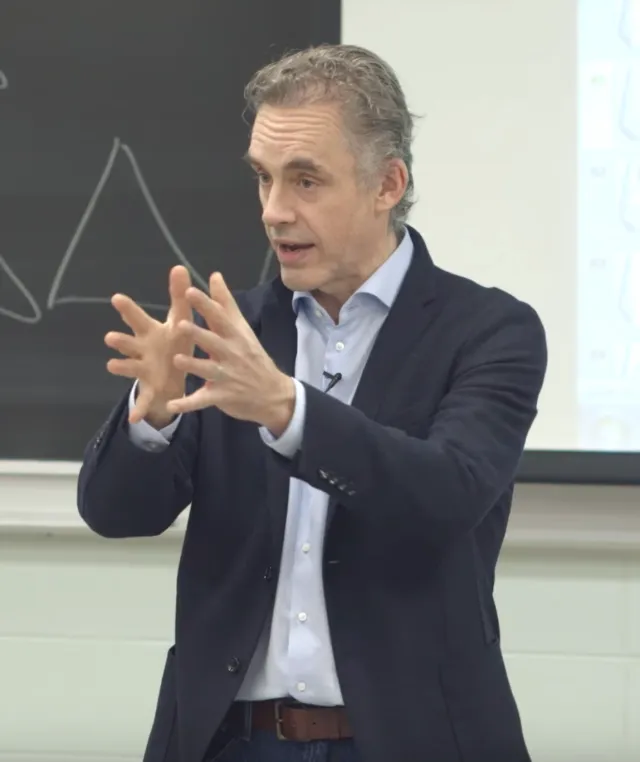
Let’s return to Peterson, whose views Newman presumably wanted to discredit on air and Rambukkana was so intent on keeping out of the classroom. Peterson has been broadly critical of the social justice movement. For example, he’s criticised it for being authoritarian—including in the aforementioned instance of compelled speech for gender pronouns—and has warned about similarities to authoritarian communist regimes. But it’s more than that. Peterson has argued that it disenfranchises many people, especially men. In his view, most people find meaning in life through their participation in social structures and hierarchies. This is more than just a casual opinion; Peterson is a clinical psychologist who has also researched and published extensively on psychometrics.
Which brings us back to the question of whether critical theory and the social justice movement it has inspired, is truly promoting universal values. From a psychological perspective, illuminated through psychometrics, people differ with respect to a variety of personality traits, and therefore also with respect to the type of society they want to live in. If we’re going to talk about values, this is a good starting point. But from this perspective, it’s difficult to imagine truly universal values; some societal arrangements are inevitably going to appeal to some people more than others.
One might interpret Peterson as shedding light on this problem by pointing out that the morality of contemporary Western society, with its emphasis on equality and liberation, is acting in the service of particular psychological interests while acting against others. In other words, a similar situation to that which Marx and the original critical theorists criticised the classical liberal bourgeoisie for: presenting their own interests as universal values or truths.
Consider the concept of liberation. It’s held in society to be an unquestioned moral good, one that no reasonable person could possibly disagree with, in large part due to a variety of positive connotations. Yet, in practice, its implementation invariably involves dismantling societal structures in accord with some people’s psychological interests and in conflict with other people’s. Hence, we see conservative people feel increasingly alienated from mainstream culture, as cultural leaders systematically attack everything from sexual norms to familial structures to national identity to cultural history, ostensibly in the pursuit of liberation.
The same applies to the concept of equality. This, also, is held in contemporary society as an unquestioned moral good that no reasonable person could disagree with. In practice, though, its implementation involves removing aspects of society that involve competitiveness and status-seeking, which for some people may provide significant meaning to their lives. Or take the associated concept of gender equality. This, too, might appear unquestionable and universal. But it’s not, because its implementation disincentivises risk-taking and status-seeking, and these are especially meaningful to men.
The tensions within the concept of equality were apparent in Peterson’s interview with Newman. At 11:27 in the Channel 4 interview, she asks:
Cathy Newman: A simple question, is gender equality a myth, in your view? Is that something that’s just never going to happen?
Jordan B Peterson: It depends on what you mean by equality
CN: Being treated fairly, getting the same opportunities
JBP: Fairly, we could get to a point where people are treated fairly, or more fairly. I mean, people are treated pretty fairly in Western culture already but we can improve that
CN: But they’re really not though are they, otherwise why would there only be seven women running FTSE 100 companies in the UK? Why would there still be a paygap which we’ve discussed at length?
JBP: Oh, that’s easy
CN: Why do we have women at the BBC who are getting illegally paid, less than men? That’s not fair is it?
JBP: Well, let’s go back to the first question, they’re both complicated questions, how many women run FTSE companies?
CN: Seven women
JBP: The first question might be, why would you want to do that?
CN: Why would a man want to do that? Because there is a lot of money?
JBP: There’s a certain number of men, although not that many, who are perfectly willing to sacrifice virtually all of their life to the pursuit of a high end career. These are men that are very intelligent, they’re usually very very conscientious, they’re very driven, they’re very high energy, they’re very healthy, and they’re willing to work 70 or 80 hours a week non-stop, specialised, one-thing, to get to the top
CN: So you’re saying that women are just more sensible, they don’t want that because they want a nice life?
JBP: I’m saying that’s part of it, definitely
CN: So you don’t think there are barriers in their way to getting to the top?JBP: Oh there are some barriers, like men, for example, I mean to get to the top of any organisation is an incredibly competitive enterprise and the men that you’re competing with are simply not going to roll over and say “please take the position,” it’s absolute all-out warfare
CN: Let me come back to my question: is gender equality a myth?
JBP: I don’t know what you mean by the question, men and women aren’t the same and they won’t be the same, that doesn’t mean that they can’t be treated fairly
The simple point being made is that gender equality isn’t a neutral concept because equality isn’t gender-neutral.
This confusion, more broadly, may explain why boys and young men are now becoming increasingly alienated from the educational system. Supposedly universal values being implemented in the system are in fact not universal, but favour attributes that are more prevalent in women than in men.
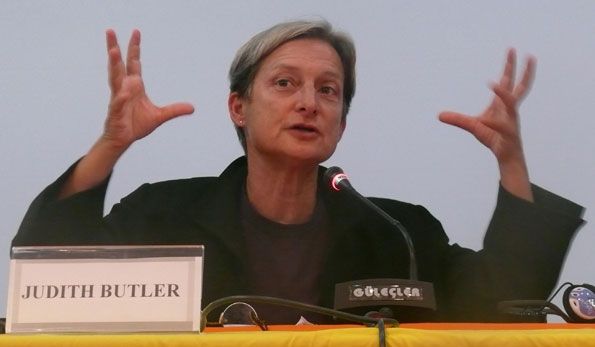
The identity of the group providing the intellectual foundation for both critical theory and the social justice movement are mostly white middle-and-upper-class intellectuals from the political left in advanced Western economies. It may be more illuminating to see this group’s interests as the driving force of societal change, rather than those of the ever-changing group of the powerless. In effect, the intellectuals of the political left are creating the type of society they personally want to live in. ‘The powerless’ are temporary allies on this journey.
Over the past few decades, this group has become increasingly powerful, essentially becoming a bourgeoisie much like the one Marx and the early critical theorists were criticising, and using many of the same mechanisms: suppressing criticism through control of the news media and now social media, enforcing rigid etiquette in speech and behaviour, using the education system to teach its values, and most importantly, representing its own interests as universal values and beliefs.
Peterson represents a growing group of people who are now waking up and starting to look more closely at contemporary morals, beliefs, and institutions that they had previously held beyond reproach and are now asking: “Are these things really universal or interest-neutral, and if not, whose interests are they serving and whose values do they represent?” This is a process, I think, that is inevitable.






